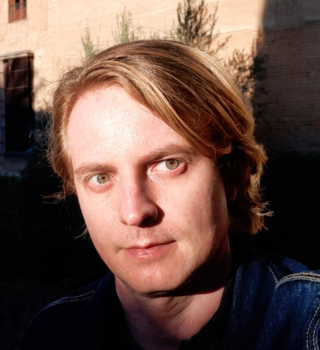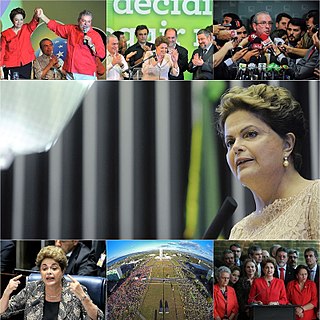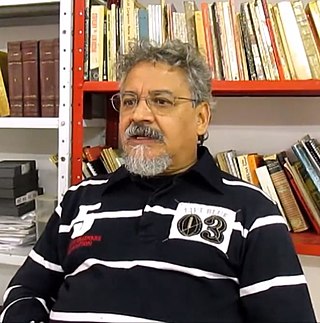
Sociedade Esportiva Palmeiras, commonly known as Palmeiras, is a Brazilian professional football club based in the city of São Paulo, in the district of Perdizes. Palmeiras is one of the most popular clubs in South America, with around 21 million supporters and more than 184,679 affiliated fans. Despite being primarily a football club, Palmeiras competes in a number of different sports. The football team plays in the Campeonato Paulista, the state of São Paulo's premier state league, as well as in the Brasileirão Série A, the top tier of the Brazilian football league system.

Progressistas is a centre-right to right-wing political party in Brazil. Founded in 1995 as the Brazilian Progressive Party, it emerged from parties that were successors to ARENA, the ruling party of the Brazilian military dictatorship. A pragmatist party, it supported the governments of presidents Fernando Henrique Cardoso, Luiz Inácio Lula da Silva, Dilma Rousseff, Michel Temer and Jair Bolsonaro. Largely it was the party of the politics of Paulo Maluf, a former governor and mayor of São Paulo. Of all political parties, in corruption investigation Operation Car Wash, the Progressistas had the most convictions.

Richarlyson Barbosa Felisbino, simply Richarlyson, is a Brazilian former professional footballer. Mainly a defensive midfielder, he could also play as a left back or central defender. He currently works as a pundit for SporTV.

José Domingos de Morais, better known as Dominguinhos, was a Brazilian composer, accordionist and singer. His principal musical influences were the music of Luiz Gonzaga, Forró and in general the music of the Sertão in the Brazilian Northeast. He further developed this typical Brazilian musical style, born out of the European, African and Indian influences in north-eastern Brazil, creating a unique style of Brazilian Popular Music.

Richard Miskolci is a Brazilian sociologist. He is Full Professor of Sociology at UNIFESP, Brazil, and also a researcher of CNPq. Miskolci is the leader of the Research Center Quereres.

Demétrio Martinelli Magnoli is a Brazilian sociologist, PhD in human geography, writer and columnist. While in 2012, he was named by the Época magazine as one of the "New Right's shrill voices.", Magnoli considers himself a centre-left social-democrat.

Maílson Ferreira da Nóbrega is a Brazilian economist. He was Finance minister in José Sarney's administration during a period of hyperinflation in the late 1980s. He is married and has five children.

Corruption in Brazil exists on all levels of society from the top echelons of political power to the smallest municipalities. Operation Car Wash showed central government members using the prerogatives of their public office for rent-seeking activities, ranging from political support to siphoning funds from state-owned corporation for personal gain. Mensalão for example was the practice of transferring taxpayer funds as monthly allowances to members of congress from other political parties in consideration for their support and votes in congress. Politicians used the state-owned and state-run oil company Petrobras to raise hundreds of millions of reais for political campaigns and personal enrichment.

Events in the year 2015 in Brazil:

Maria da Conceição Tavares is a Portuguese naturalized Brazilian economist. She is a full professor at the State University of Campinas (Unicamp) and professor emeritus of the Federal University of Rio de Janeiro (UFRJ). Her students have included the former president of Brazil, Dilma Rousseff. Tavares is affiliated with the Workers' Party, and she was a Federal Deputy representing the state of Rio de Janeiro between 1995 and 1999. Left-wing focused, she is the author of several books on Brazil's economic development as well as numerous journal articles.

Luiz Felipe de Cerqueira e Silva Pondé is a Brazilian writer and professor of philosophy.

The impeachment of Dilma Rousseff, the 36th president of Brazil, began on 2 December 2015 with a petition for her impeachment being accepted by Eduardo Cunha, then president of the Chamber of Deputies, and continued into late 2016. Dilma Rousseff, then more than 12 months into her second four-year term, was charged with criminal administrative misconduct and disregard for the federal budget in violation of article 85, items V and VI, of the Constitution of Brazil and the Fiscal Responsibility Law, article 36. The petition also accused Rousseff of criminal responsibility for failing to act on the scandal at the Brazilian national petroleum company, Petrobras, on account of allegations uncovered by the Operation Car Wash investigation, and for failing to distance herself from the suspects in that investigation.

From mid-2014 onward, Brazil experienced a severe economic crisis. The country's Gross Domestic Product (GDP) fell by 3.5% in 2015 and 3.3% in 2016, after which a small economic recovery began. That recovery continued until 2020, when the COVID-19 pandemic began to impact the economy again.
Fiscal pedaling is a governmental creative accounting technique involving the use of state-owned banks to front funds required for paying general government obligations without officially declaring a loan, thus hiding these transfers from public scrutiny and delaying repayment from the Treasury to these banks. As such it is a kind of "overdraft" implying a positive balance sheet that does not really exist. Sometimes the term fiscal backpedaling is used.

Luiz Philippe of Orléans-Braganza is a Brazilian politician, activist, businessman, and member of the former ruling House of Orléans-Braganza. He was elected Federal Deputy for São Paulo in the 2018 Brazilian elections for the Social Liberal Party with 118,457 votes.

Luiz Felipe Baleia Tenuto Rossi, commonly known as Baleia Rossi, is a Brazilian politician and entrepreneur, incumbent Federal Deputy from São Paulo and National President of the Brazilian Democratic Movement (MDB).

Plínio de Arruda Sampaio Jr., sometimes simply referred to as Plininho, is a Brazilian economist, academic, and political figure. He is a retired professor of economics at the University of Campinas in São Paulo, one of the top-ranked universities in Brazil and Latin America. During his career, Arruda Sampaio Jr.'s work primarily focused on the economic history of Brazil, developmentalism, and political economy. He has also served on the editorial board of Brasil de Fato, a left-wing publication.
Nicolau Sevcenko was a Brazilian historian, university professor, columnist, writer, and translator.

Marco Edson Gonçalves Dias, also known as G. Dias, is a retired divisional general of the Brazilian Army. He was the head of the Institutional Security Bureau.

Edmilson Silva Costa is a Brazilian economist, college professor and politician affiliated to the Brazilian Communist Party (PCB), serving as the party's General Secretary. He is a Doctor of Economics at the State University of Campinas.
















